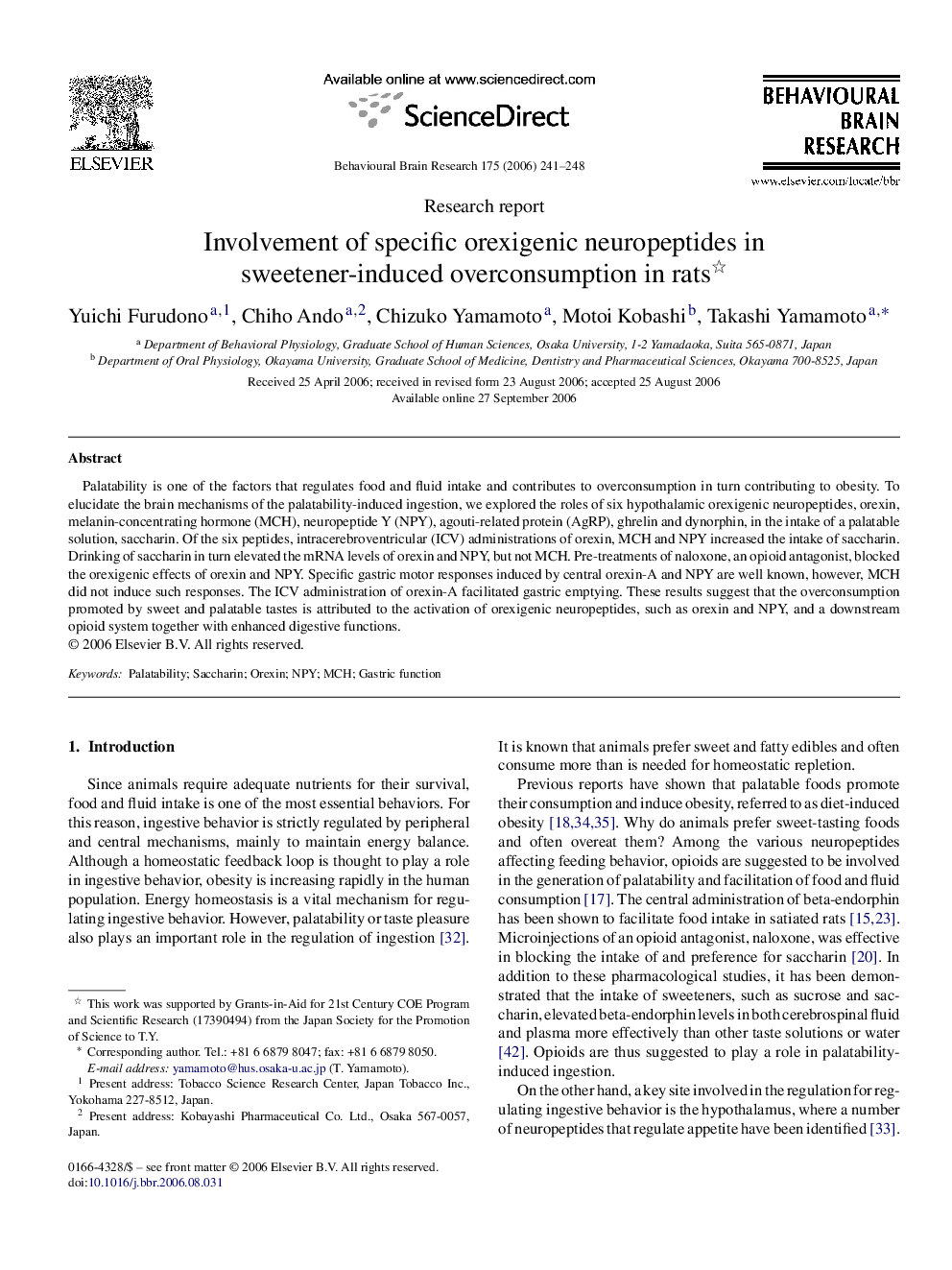| Article ID | Journal | Published Year | Pages | File Type |
|---|---|---|---|---|
| 4315893 | Behavioural Brain Research | 2006 | 8 Pages |
Palatability is one of the factors that regulates food and fluid intake and contributes to overconsumption in turn contributing to obesity. To elucidate the brain mechanisms of the palatability-induced ingestion, we explored the roles of six hypothalamic orexigenic neuropeptides, orexin, melanin-concentrating hormone (MCH), neuropeptide Y (NPY), agouti-related protein (AgRP), ghrelin and dynorphin, in the intake of a palatable solution, saccharin. Of the six peptides, intracerebroventricular (ICV) administrations of orexin, MCH and NPY increased the intake of saccharin. Drinking of saccharin in turn elevated the mRNA levels of orexin and NPY, but not MCH. Pre-treatments of naloxone, an opioid antagonist, blocked the orexigenic effects of orexin and NPY. Specific gastric motor responses induced by central orexin-A and NPY are well known, however, MCH did not induce such responses. The ICV administration of orexin-A facilitated gastric emptying. These results suggest that the overconsumption promoted by sweet and palatable tastes is attributed to the activation of orexigenic neuropeptides, such as orexin and NPY, and a downstream opioid system together with enhanced digestive functions.
